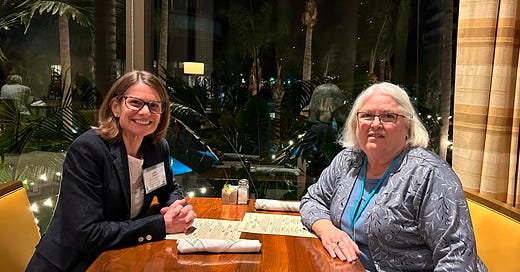First Women to Lead Evangelical Academic Societies Make History Together
An interview with Karen Jobes and Lynn Cohick

Theological academia has long been a man’s world, but in November 2024, conservative evangelical scholars witnessed women leading two societies’ annual board meetings and speaking to the gathered attendees.1 The historic occasion gave wo…
Keep reading with a 7-day free trial
Subscribe to The Estuary with Kelley Mathews to keep reading this post and get 7 days of free access to the full post archives.



